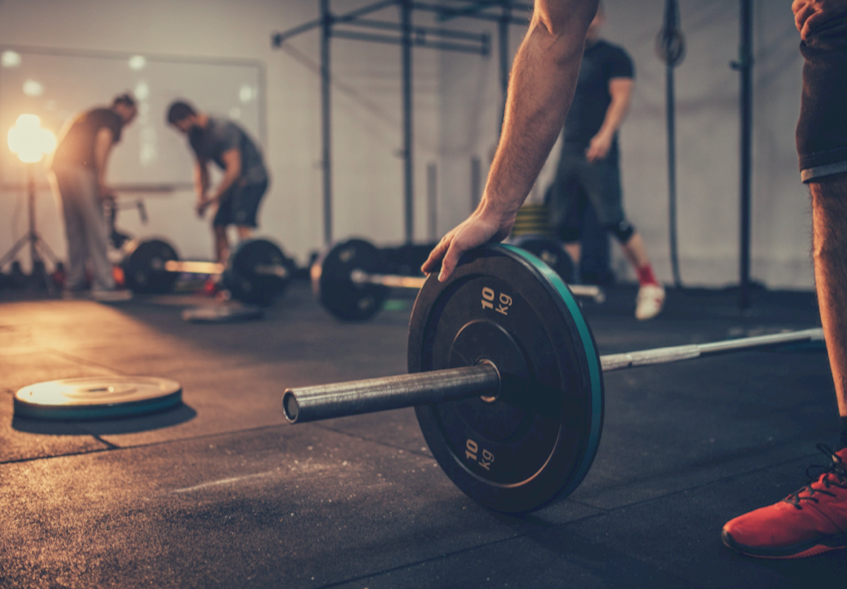- Fast results
- 4,000+ locations
- 4.8 star rating
Need Help? (888) GET LABS


This article is Medically Approved ✓ by Dr. Edward Salko
When hearing the term bodybuilding, people often think about muscular men and women in great shape, glistening on the stage.
Indeed, it is hard not to associate bodybuilding with its competitive cluster. But there is more to this physical activity that enhances your body’s aesthetics.
For starters, anyone can be a bodybuilder. Furthermore, you can choose to be a bodybuilder and not join competitions which lessens the pressure.
On the other hand, a recommended step when engaging in this level of physical activity is to take a bodybuilder blood test to secure baseline data. This may appear as if the sport is too intensive.
Which brings us to the question: Is bodybuilding healthy or harmful to your body?
We explore the answer to this query and the details you need to know to start bodybuilding the right way.

Bodybuilding refers to enhancing muscle growth through a mix of specific dietary intake, weightlifting, cardio, and resistance training.
When it comes to competitive bodybuilding, it is primarily treated as a visual sport. Athletic bodybuilders showcase their aesthetically pleasing physique.
To attain this level of incredible body proportion and overall body image, professional bodybuilders have strict meal inclusions, consistent monitoring that encompasses bodybuilder blood tests and doctor consultations, as well as plenty of training.
On the other hand, the term bodybuilder is not exclusive to those who are competing on stage.
Anyone who works on improving their physique, regardless of their ultimate goal, is considered a bodybuilder.
Therefore, if you want to achieve a better body shape, increase your lean muscle mass, and improve your fitness, you can pursue bodybuilding without really getting into the sports – or at least not yet.

While your goal is never really an issue in becoming a bodybuilder, your health status should be checked first.
Bodybuilding may have intense training that could either be good or bad, depending on your health status.
Consult your doctor first, and if you’re given the green light, you might gain the following advantages.
Resistance training is a great way to improve lipid metabolism. As a result, it significantly decreases body fats and unwanted cholesterol.
In addition, lowering visceral fats is a critical step to decrease the risk for heart disease, high blood pressure, obesity, and other chronic illnesses.
Weightlifting, a standard part of bodybuilding training, directly lowers the risks of heart attack and stroke based on a study by the Iowa State University.
The only caveat is that it should be done in moderation as it may overturn the effect once bodybuilders perform overly intense training.
Furthermore, it aids not only in shaping physique but in promoting a longer lifespan.
Muscle fibers tend to diminish as we get old.
You’ll start to lose 3% to 5% of your muscle mass by the time you turn 30. And the process speeds up when your muscles are not used in physical activities.
With bodybuilding, you are subjected to weightlifting and resistance training that involves the wear and tear of muscles. It may sound ironic, but for muscles to grow, it needs to undergo a certain level of damage.
When this is achieved, the muscle fibers are then repaired and begin to proliferate, increasing mass. The process is medically referred to as muscle hypertrophy.
Furthermore, protein intake also plays an essential role in promoting muscle mass.
According to research, exercises such as those involved in bodybuilding coupled with protein supplementation can improve muscle mass.
On the other hand, if you consume protein supplements without sufficient training stimulus, you may not see the same results.
Aside from muscle growth, bodybuilding is also known to promote bone health.
Resistance exercise remains to be one of the physical activities that prevent bone loss.
Like muscle mass loss, the frailty of our bones can be associated with aging and calcium or vitamin D deficiency.
With aging, the most common threat to bone health is osteoporosis or the weakening of the bone structure, resulting in fractures and bone breaks.
When it comes to maintaining bone density, stress is also needed, much like in retaining muscle mass. Therefore, strength training is an effective way to reduce the risks of osteoporosis.
In the same way, it can also manage arthritis. The growth of muscles around the joints protects the latter and prevents the development of pain.
Bodybuilding goes beyond physical benefits. You can also gain health and wellness in your mental state.
Strength exercises are great ways to stimulate the release of brain chemicals involved in mood regulation.
Moreover, in a study published in JAMA Psychiatry, it has been found that resistance training considerably eases the symptoms of depression.
Likewise, the diet recommended for bodybuilders also eliminates foods that disrupt the production of these brain chemicals.
In the context of competitive bodybuilding, stepping on the stage is considered a significant confidence booster for both male and female bodybuilders.

There’s no denying that bodybuilding has a myriad of health benefits.
But like any other physical training, if you go beyond moderation or perform the exercises without caution, you may find yourself in a challenging position.
Instead of gaining more, you might face even more harm, such as the following:
If the training technique is poorly executed, the chances of sustaining injuries are high.
Some of the injuries you might acquire during training include elbow tendonitis, herniated disc, knee injury, and low back injury.
Nonetheless, when it comes to competitive bodybuilding, cases of injuries are less compared to other forms of athletic discipline.
Hormones are essential in achieving the ideal physique that bodybuilders aim for.
During training and exercises, two types of hormones are released: anabolic and catabolic. Anabolic hormones require energy and promote muscle and bone growth.
Some bodybuilders enhance the production and absorption of these hormones with supplements like steroids and proteins, while others tend to over-exercise.
Without proper regulation, you may find yourself suffering from a hormonal imbalance that can critically affect metabolism.
That is why blood tests are imperative to ensure that you are getting your desired outcomes without compromising your health.
Taking lab tests designed mainly for bodybuilders will not only help you maintain good health and wellness but will also allow you to check on your progress by comparing your baseline data to your current results.
According to research, muscle dysmorphia is a condition that mostly affects male bodybuilders.
Muscle dysmorphia is also known as reverse anorexia. The condition is characterized by a shrouded belief that your body is too small or not muscular enough despite clear evidence of the opposite.
Bodybuilders with muscle dysmorphia will tend to continue exercising, take supplements, and resort to abnormal eating.
To manage muscle dysmorphia, it is treated as a mental health condition. Medical professionals could prescribe certain medications or therapy to manage it.

If you weigh the advantages and disadvantages of bodybuilding, you can easily conclude that you can get more gains than losses.
Added with the fact that the danger of the discipline lies in carelessness, you can magnify its health benefits if you do it the right way.
To begin with, make sure to take the bodybuilder profile blood test to learn if there are critical changes in your body after starting your training.
Second, make sure to seek your doctor’s approval. Third, work with a professional trainer to avoid injuries because of poor execution.
Lastly, be very clear about your goals before pursuing bodybuilding.

© Copyright 2025 Personalabs. All Rights Reserved.